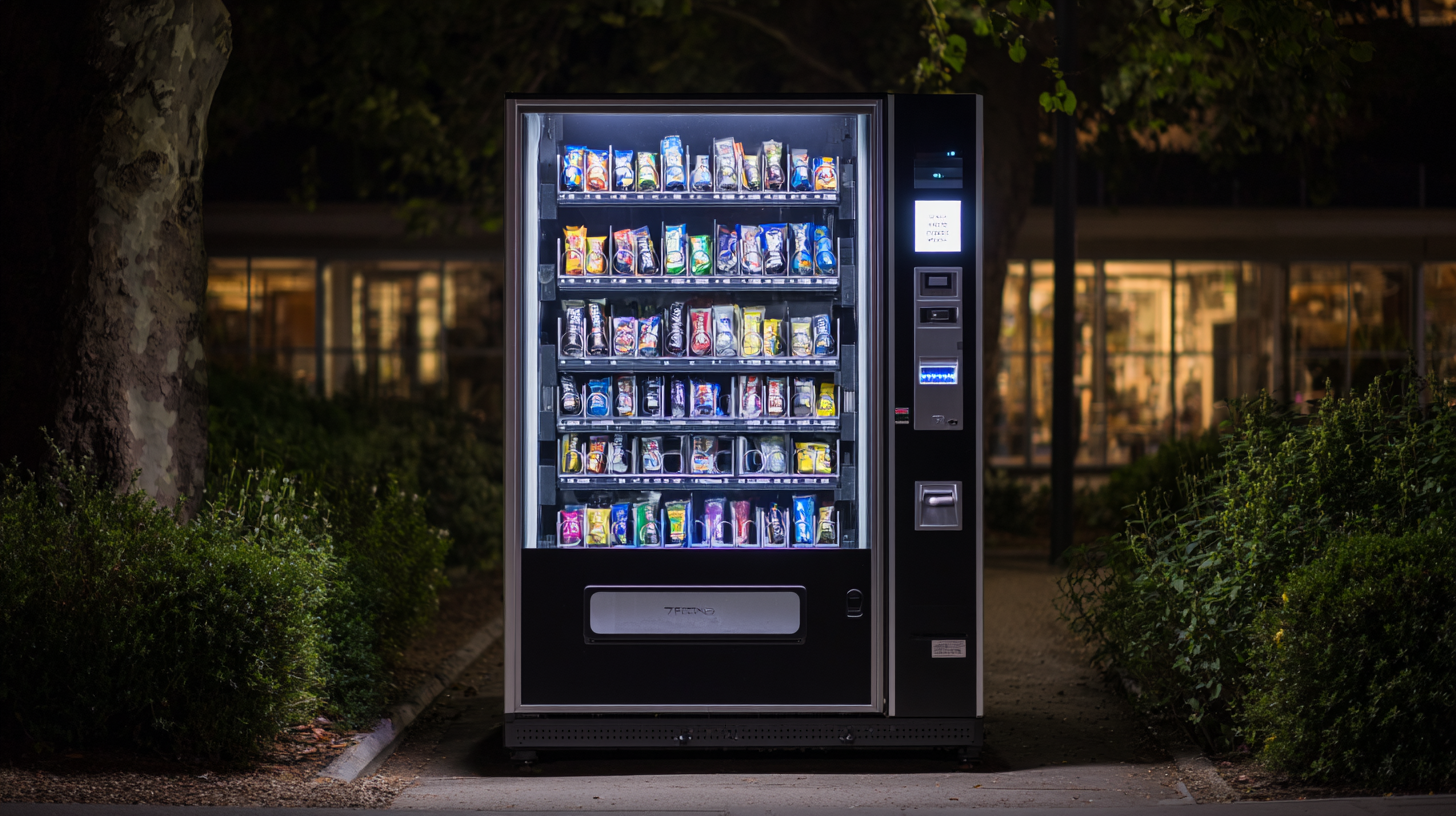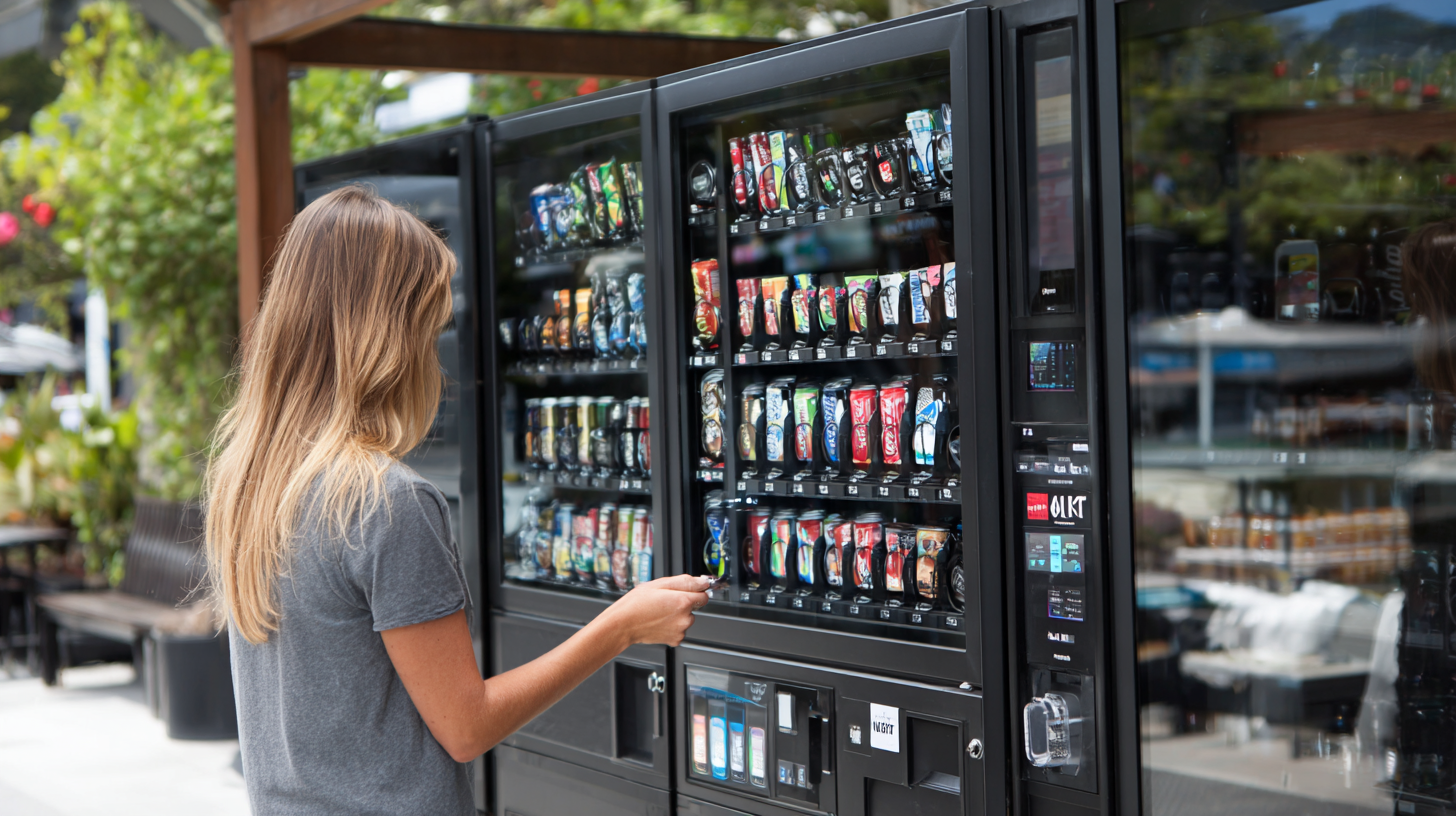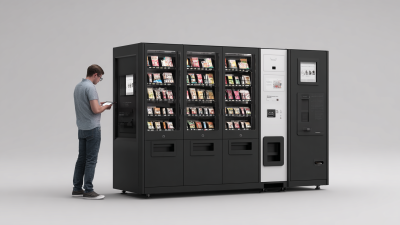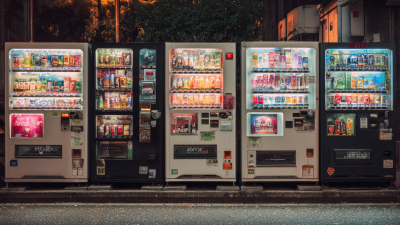Unlocking the Future: How Smart Vending Solutions Transform Consumer Convenience
 In the rapidly evolving landscape of consumer convenience, vending solutions are at the forefront of innovation, reshaping how we access goods and services in our daily lives. Traditional vending machines have transitioned from simple snack dispensers to sophisticated, technology-driven platforms that cater to a wide array of customer needs. These smart vending solutions utilize cutting-edge technology, including cashless payment systems, real-time inventory management, and personalized user experiences, to provide unparalleled convenience for consumers. By embracing these advancements, businesses can enhance customer engagement, streamline operations, and adapt to the dynamic expectations of a modern marketplace. As we delve into the transformative potential of vending solutions, it becomes clear that they not only offer immediate accessibility to products but also pave the way for a more connected and efficient future in retail and service industries.
In the rapidly evolving landscape of consumer convenience, vending solutions are at the forefront of innovation, reshaping how we access goods and services in our daily lives. Traditional vending machines have transitioned from simple snack dispensers to sophisticated, technology-driven platforms that cater to a wide array of customer needs. These smart vending solutions utilize cutting-edge technology, including cashless payment systems, real-time inventory management, and personalized user experiences, to provide unparalleled convenience for consumers. By embracing these advancements, businesses can enhance customer engagement, streamline operations, and adapt to the dynamic expectations of a modern marketplace. As we delve into the transformative potential of vending solutions, it becomes clear that they not only offer immediate accessibility to products but also pave the way for a more connected and efficient future in retail and service industries.
The Rise of Smart Vending Machines: Revolutionizing Consumer Access
The rise of smart vending machines is reshaping consumer access and convenience in unprecedented ways. With the global smart vending machine market projected to increase from $11.47 billion in 2025 to an astounding $36.89 billion by 2032, the compound annual growth rate (CAGR) of 18.2% reflects a significant trend towards automation and enhanced consumer experiences. This growth is driven by technological advancements that allow these machines to offer a diverse range of products, from snacks to electronics, all while providing real-time data on consumer preferences and inventory management.
Moreover, the overall automated vending machine market is expected to expand from a valuation of $206.90 billion in 2025 to $404.11 billion by 2033, indicating a broader shift in retail dynamics. As businesses continue to innovate, smart vending solutions are not just about convenience; they're central to creating a seamless shopping experience that caters to modern consumer demands.
With integrated AI and IoT technologies, these machines can analyze consumer behavior, manage stock levels, and even personalize offerings, thereby transforming how consumers interact with retail environments.
Enhancing User Experience: The Technology Behind Smart Vending Solutions
Smart vending solutions are revolutionizing user experience by integrating advanced technologies that enhance convenience and accessibility. With the global smart vending machine market projected to grow significantly, from $41.84 billion in 2024 to an astonishing $113.85 billion by 2033, it's clear that consumers are embracing these innovative platforms. By leveraging artificial intelligence (AI), smart vending machines can offer personalized recommendations and real-time inventory updates, allowing users to find exactly what they need quickly and efficiently.
Tips for enhancing user experience with smart vending solutions include incorporating voice search capabilities and intuitive interfaces that cater to diverse consumer preferences. Businesses should also focus on integrating mobile payment options, providing a seamless transaction process that meets the demands of an increasingly tech-savvy audience. This not only streamlines the purchasing experience but also fosters greater customer satisfaction and loyalty.
Furthermore, adopting generative AI technologies can help create tailored promotional offers based on user behavior, leading to a more engaging and dynamic shopping environment. As smart vending solutions continue to evolve, the emphasis on user experience will remain a key driver of market growth and innovation in the retail landscape.

Sustainability and Smart Vending: Environmentally Friendly Innovations
As the demand for eco-friendly solutions rises, smart vending machines are leading a transformative wave in consumer convenience and sustainability. With the global smart vending machine market projected to reach USD 78.87 billion by 2033, it’s clear that these innovations are not only enhancing the user experience but also contributing to environmental goals. The growing popularity of reverse vending machines, expected to reach a market size of $1.2 billion by the same year, exemplifies this shift towards solutions that encourage recycling and reduce waste.
Tips: Consider investing in smart vending solutions that offer sustainable products or promote recycling to capitalize on this burgeoning market. Businesses can attract eco-conscious consumers by integrating green technologies into their offerings.
Moreover, events like NAMA 2025 highlight how automation in vending is steering industries toward responsible practices. With a clear emphasis on reducing environmental impacts and promoting sustainability through intelligent design, the future of vending is not just about convenience—it's also about being a steward of the planet. As companies innovate to meet these challenges, their efforts align with global trends pushing for a greener economy.
Tips: Embrace automation in your vending strategies to improve efficiency and sustainability. Partnering with startups focused on green innovations can further enhance your commitment to responsible business practices.
Unlocking the Future: How Smart Vending Solutions Transform Consumer Convenience - Sustainability and Smart Vending: Environmentally Friendly Innovations
| Feature | Description | Impact on Sustainability |
|---|---|---|
| Cashless Payments | Supports multiple digital payment options for convenience. | Reduces cash handling and increases transaction efficiency. |
| Smart Inventory Management | Monitors stock levels in real-time, automatically reordering items as needed. | Minimizes food waste and ensures product freshness. |
| Eco-Friendly Packaging | Uses biodegradable or recyclable materials for all products. | Reduces plastic waste and promotes recycling efforts. |
| Energy-Efficient Machines | Equipped with energy-saving technologies to reduce power consumption. | Lowers carbon footprint and reduces operating costs. |
| User Feedback Systems | Allows customers to provide instant feedback on products and services. | Enhances customer satisfaction and helps improve product offerings. |
The Future of Payment Systems in Vending Solutions: A Seamless Approach
The global vending machine market is projected to reach a value of $7.01 billion in 2024, with estimates suggesting it could grow to $8.81 billion by 2032, marking a compound annual growth rate of 2.9%. This growth is closely intertwined with advancements in payment systems that enhance consumer convenience. As technology evolves, the demand for seamless and secure payment options becomes more critical, particularly as consumers increasingly shift towards online shopping and expect an uninterrupted transaction process.

Emerging smart vending solutions are leveraging these trends by offering cashless payment methods, providing customers with the flexibility and speed they desire. No longer just a convenience for retailers, cashless transactions have become a necessity in today's marketplace. As consumers place greater emphasis on quick and efficient payment systems, the integration of user-friendly payment solutions—such as mobile wallets and contactless payments—becomes essential in enhancing the overall customer experience. This ongoing transformation underscores the importance of evolving payment technologies in shaping the future of the vending industry.
Data-Driven Insights: Customizing Offerings for Consumer Preferences
Smart vending solutions are revolutionizing the way consumers interact with retail, driven by data-driven insights that allow businesses to tailor their offerings to meet specific consumer preferences. According to a recent report by ResearchAndMarkets, the global smart vending machines market is projected to grow at a CAGR of 12.5% from 2021 to 2026, indicating a strong shift towards more intelligent, responsive retail solutions. These vending machines utilize real-time data analytics to track consumer behaviors and preferences, enabling brands to adjust their product selections dynamically.
For instance, by analyzing purchasing patterns gathered through machine learning algorithms, operators can identify peak buying times and preferred products, thus optimizing inventory management and enhancing customer satisfaction. A study by McKinsey reveals that companies employing data-driven strategies are 23 times more likely to acquire customers and 6 times more likely to retain them. This not only streamlines operations but also facilitates the introduction of personalized offerings, such as localized snacks or dietary-specific items, which appeals directly to the modern consumer's desire for convenience and personalization.


